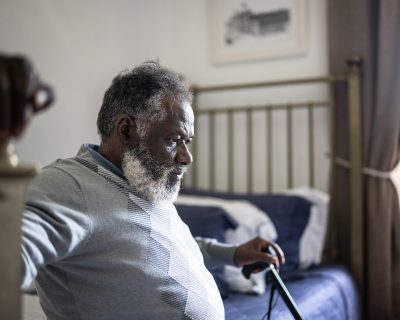Finding
Income, neighborhood characteristics, and state policies may underly racial disparities in who gets needed care, despite federal efforts to expand home-care programs.
 Although the Affordable Care Act (ACA) included provisions to expand community and home-based services for older adults, research shows that Black and Hispanic older adults are much more likely to need daily help at home—and to go without it—than their white peers.
Although the Affordable Care Act (ACA) included provisions to expand community and home-based services for older adults, research shows that Black and Hispanic older adults are much more likely to need daily help at home—and to go without it—than their white peers.
About 1 in 3 Black and Hispanic older adults had difficulties at home with daily tasks such as showering, dressing, or preparing hot meals compared with 1 in 5 older white adults, finds a new study by Jun Li of Syracuse University and Jinkyung Ha and Geoffrey Hoffman of the University of Michigan. The researchers used data from 2008 to 2018 from the nationally representative Health and Retirement Study.
Black and Hispanic older adults ages 55 and above who need help with daily activities were consistently 1.5 times more likely to be without corresponding care support than older white adults, Li, Ha, and Hoffman found. Yet they were no more likely than older white adults to receive paid help, instead relying heavily on family and friends.
Paola Scommegna & Mark Mather (March 2024). Among Older Americans, Black and Hispanic People Are Much More Likely to Need Help at Home—and Go Without It, Population Reference Bureau.
Jun Li, Jinkyung Ha, Geoffrey Hoffman (2023). Unaddressed functional difficulty and care support among White, Black, and Hispanic older adults in the last decade. Health Affairs Scholar, 1(3).
